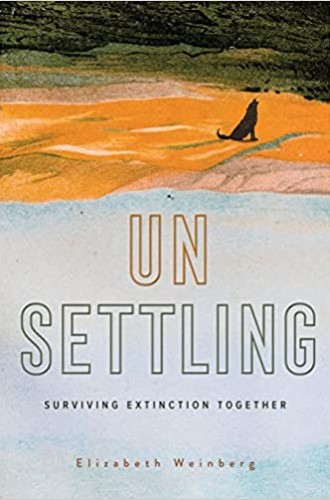A reminder of what’s worth saving
Elizabeth Weinberg’s call to climate action highlights the interconnection of all things.
That the climate crisis poses an existential threat to humanity is no longer up for debate, as heat waves intensify, wildfires proliferate, and sea levels rise. Earlier this year, the UN’s Intergovernmental Panel on Climate Change reported for the first time that damage due to climate change is “irreversible,” destroying any lingering hope that humans might undo the harm we have done. Scientists have long known there was a chance we would reach this point of no return, but the reality is still hard to stomach. There will be no restoring the world we once knew, but there remains the possibility—however diminishing—of a world with us in it.
Queer essayist and science communicator Elizabeth Weinberg writes for such a time as this. Although she describes herself as “not a religious person, or even someone who believes in a god,” she writes with prophetic courage and clarity. The call to climate action has never been more urgent, and Weinberg doesn’t shy away from how absolutely terrifying that is. Unsettling is a book for those of us who don’t need to be convinced that climate action is a priority but who feel overwhelmed by the realities of climate devastation. In other words, it’s probably a book for most of us.
Unsettling is part memoir, part call to action in the form of an extended essay in creative nonfiction. It unfolds in eight chapters with thematic titles like “Graveyard,” “Wilds,” and “Legacy,” and in each one Weinberg introduces habitats and species to underscore the interconnectivity of all things. Weinberg is a science writer by profession, and it shows in her ability to translate Earth’s biomes into compelling stories about resilience, grief, and the circle of life. She writes that coyotes can alter the size of their litters to control population growth and that decomposing whale carcasses provide an oasis of nutrients for more than 400 species on the ocean floor. She explains that sea level rise is deceptively difficult to predict and that glacial ice acts like a liquid rather than a solid. On every page, Weinberg reveals more of Earth’s marvels, reminding readers of all there is worth saving.






